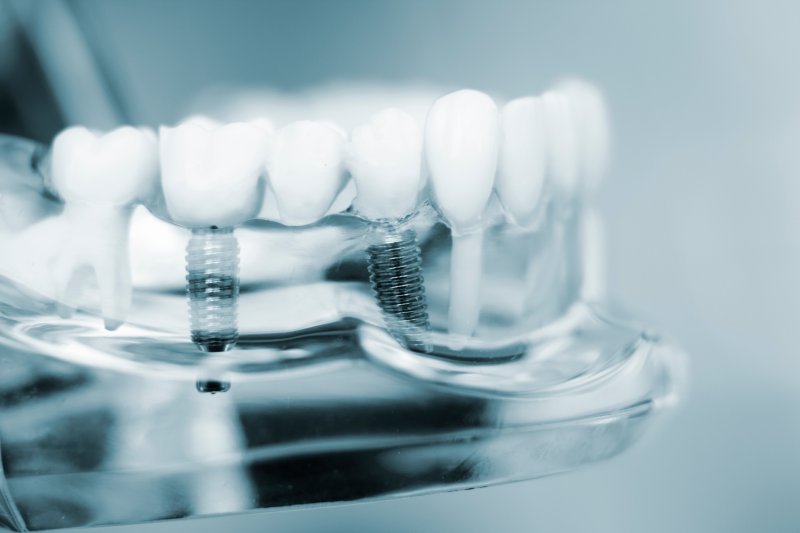
So, you’re thinking of getting dental implants. That’s great news — you can count on these prosthetic teeth to restore your smile! Still, you may have concerns about these restorations’ materials. In particular, you may wonder if implants’ titanium screws set off metal detectors. You wouldn’t want airport security to become more stressful. Fortunately, your Lebanon dentist can relieve your worry. Here’s a summary of why implants don’t trigger metal detectors, especially in light of how the sensors work.
Some Context: How Metal Detectors Work
To answer the detection question, it’s crucial to know how metal detectors work. The explanation won’t make sense if you don’t.
Metal detectors operate by using a magnetic field in a series of pulses. These pulses then create a natural echo, which the machine turns into a reading. As such, a metal object passing through the detector will generate its own magnetic field. This second field changes the echo the device expects into one that’s larger and longer than usual.
Why Implants Don’t Trigger the Detectors
Several overlapping factors explain why implants don’t trigger detectors. Namely, they are the following:
Implants are Insulated
Unlike other metal items, dental implants are insulated. Their titanium is shielded beneath a mix of porcelain and bone. As such, a detector’s field struggles to reach them.
That said, not all insulated metals are safe in this way. Replacement hips, for example, can still set off detectors despite their insulation.
Implants are Tiny
As you might expect, implants’ titanium screws are pretty small. They need to be tooth-sized to work correctly! For this reason, any magnetic field they generate is difficult to pick up.
Like with insulation, though, size alone doesn’t help implants escape notice. Tiny gum wrappers can also set off detectors. Furthermore, some implant setups have a metal quantity that sensors notice.
Titanium is Hard to Detect
Lastly, there’s the metal used in implants. Titanium is only weakly magnetic. In contrast, iron, nickel, and steel are highly so.
Still, this isn’t to say titanium generates no magnetic field at all. Some alloys have stronger reactions than others. The magnetism factor isn’t enough on its own.
Taken together, reasons like those above ensure implants don’t trigger metal detectors. You can thus rest easy as you take your new teeth through various security systems!
About the Practice
Hanover Road Dental Health is based in Lebanon, NH. As led by its trio of wonderful, experienced dentists, our practice puts your oral health first. To that end, we perform high-quality treatments that span preventive, cosmetic, and restorative dentistry. We’re even equipped to handle dental emergencies and therapies for TMJ and gum disease! For more information or to book a visit, then, reach us on our website or by phone at (603)-643-4362.

